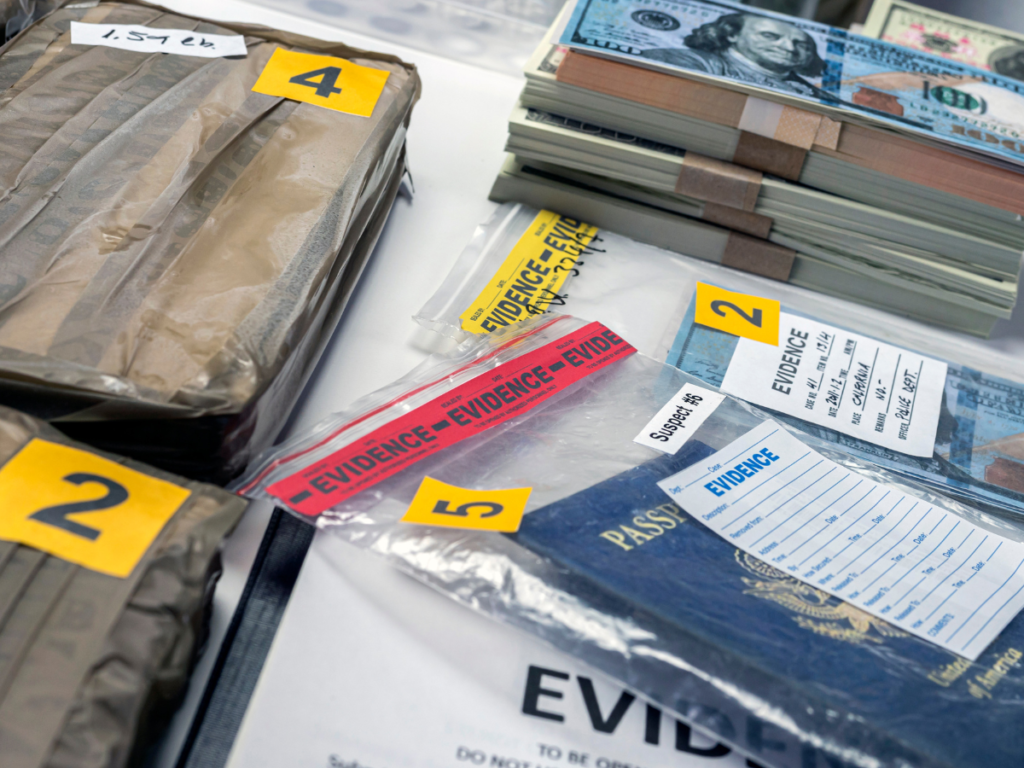Defending Against Circumstantial Evidence in Murder Trials

In murder trials, circumstantial evidence often plays a significant role in shaping the narrative and influencing the jury’s perception. Understanding the prevalence of circumstantial evidence and effectively countering it is crucial for mounting a robust defense.
Circumstantial evidence differs from direct evidence in that it does not directly prove the fact in question but relies on inference. Common types of circumstantial evidence in murder cases include motive, opportunity, and behavioral patterns. Despite its prevalence, circumstantial evidence possesses inherent weaknesses and limitations that must be acknowledged.
Challenges and Strategies
The “reasonable doubt” standard is a fundamental principle in criminal law that places a high burden of proof on the prosecution. This standard serves as a safeguard to protect individuals accused of crimes by ensuring that they are not unjustly convicted based on insufficient or questionable evidence.
The cornerstone of a successful defense against circumstantial evidence lies in establishing reasonable doubt. Scrutinizing various aspects of the prosecution’s case is crucial for creating reasonable doubt in the minds of the jurors. Each element serves a specific purpose in challenging the strength and reliability of the circumstantial evidence presented. Here’s an in-depth explanation of each point:
- Highlighting errors, inconsistencies, or gaps in the collection of evidence: The defense scrutinizes the evidence collection process to identify errors, inconsistencies, or gaps. This highlights the fallibility of the evidence and raises doubts about its accuracy and reliability.
- Questioning the credibility of witnesses and investigators: The defense aims to cast doubt on the credibility of the witnesses or investigators and weaken the overall case by exposing any biases, past contradictions, or hidden agendas that could affect the accuracy of their testimony.
- Identifying alternative explanations: Presenting alternative perspectives in a court case challenges the prosecution’s version of events by introducing doubt through plausible alternative explanations. Jurors are encouraged to entertain reasonable doubt and consider alternative viewpoints.
- Introducing evidence that challenges the prosecution’s interpretation of events: In a court case, the defense can challenge the prosecution’s claims by presenting evidence that contradicts their interpretation. This allows the defense to offer an alternative explanation for the events and cast doubt on the prosecution’s case.
Expert Witnesses
The role of expert witnesses is pivotal in murder trials. Forensic experts can be instrumental in challenging the reliability of forensic evidence presented by the prosecution. Their testimony can offer alternative interpretations of scientific evidence, raising doubts about the conclusiveness of the prosecution’s claims.
Establishing Alibis and Timelines
In murder cases, establishing solid alibis for the accused is crucial. Thorough investigation and presentation of alibis can create reasonable doubt and undermine the prosecution’s case. A strong alibi can provide an alternative narrative that contradicts the prosecution’s version of events.
Developing a solid timeline that contradicts the prosecution’s narrative is another effective strategy. By presenting evidence that challenges the chronological sequence of events as proposed by the prosecution, the defense can sow seeds of doubt in the minds of the jurors.
Suppressing Inadmissible Evidence
Identifying and challenging evidence that may be inadmissible is a critical aspect of defending against circumstantial evidence. Attorneys can file motions to suppress evidence obtained through unlawful means, emphasizing the importance of protecting the defendant’s constitutional rights during the investigation and trial.
Taking Advantage of Professional Legal Services
An experienced Breckenridge criminal defense lawyer plays a crucial role in helping the accused during a Colorado murder trial. Such attorneys possess a deep understanding of criminal law, procedural intricacies, and courtroom dynamics. They meticulously investigate the case, scrutinizing evidence, identifying legal loopholes, and challenging the prosecution’s narrative.
Drawing on their knowledge, your defense attorney can construct a robust defense strategy, presenting alternative explanations and leveraging legal precedents to cast doubt on the prosecution’s claims. They can navigate complex legal procedures, ensure your rights are upheld, and advocate for a fair trial.
Additionally, a skilled Summit County murder defense attorney may negotiate a plea deal or pursue potential avenues for reduced charges. Their advocacy can significantly impact the trial outcome, providing you with a comprehensive defense and safeguarding your rights throughout the legal process.
Here To Serve as Your Trusted Legal Allies in Colorado
If you are currently facing murder charges based on circumstantial evidence, contact Whitaker & Penix, LLC for unwavering advocacy and top-tier defense. Our Breckenridge violent crime lawyers are dedicated to providing personalized counsel, cultivating a custom-tailored defense, and fiercely protecting your rights. We are here to fight for the justice and freedom you deserve.
Call us at (970) 368-0602 for a free and confidential consultation to discuss your case.